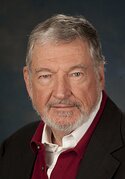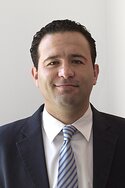The Case for Restraint in U.S. Foreign Policy
Watch the Event
Featuring
Policy Director, Defense Priorities
Adjunct Scholar
For the past two decades Democratic and Republican leaders have viewed U.S. military power as indispensable to global stability. Known as "primacy" or "liberal hegemony," U.S. military alliances, they believed, would secure the peace between foreign powers, and armed interventions would be necessary to prevent terrorism and civil conflicts abroad.
This grand strategy perspective is now undergoing major revisions, with many foreign policy and military experts now calling for restraint. The United States is now viewed as greatly benefiting from a robust state of national security thanks to its geographic, economic, and military advantages. Further, decades of rigorous military interventions and long-term military alliances have caused more problems than they solved—and a grand strategy of restraint aligns with the fundamental values at the core of our nation's founding.
At this conference, experts on international security will deeply examine the major shifts now taking place in global perspectives, and will both confront and critically examine the arguments and assumptions of the "primacy" consensus. Panelists will also discuss what form a more restrained U.S. foreign policy should take, and the prospects for restraint given American politics today.
| 9:00 – 9:15AM | Welcoming Remarks |
| 9:15 – 10:45AM | Panel 1: The Myths of Primacy: Alliances and Security Dilemmas David Edelstein, Associate Professor, Edmund A. Walsh School of Foreign Service and Department of Government, Georgetown University Eugene Gholz, Associate Professor of Public Affairs, Lyndon B. Johnson School of Public Affairs, University of Texas at Austin Brendan Green, Assistant Professor of Political Science, University of Cincinnati Joshua Shifrinson, Assistant Professor, Bush School of Government and Public Service, Texas A&M University Edward Rhodes, Professor, School of Policy, Government, and International Affairs, George Mason University Moderated by Brad Stapleton, Visiting Research Fellow, Cato Institute Download the Video of the Event
|
| 10:45 – 11:00AM | Break |
| 11:00AM – 12:30PM | Panel 2: The Myths of Primacy: Geography, Energy, and Democracy Alexander Downes, Associate Professor of Political Science and International Affairs, George Washington University Eugene Gholz, Associate Professor of Public Affairs, Lyndon B. Johnson School of Public Affairs, University of Texas at Austin Charles Glaser, Professor of Political Science and International Affairs; Director, Institute for Security and Conflict Studies, George Washington University Jonathan Monten, Lecturer in Political Science, University College London Moderated by Emma Ashford, Research Fellow, Cato Institute Download the Video of the Event |
| 12:30 – 1:30PM | Lunch Address Barry Posen, Ford International Professor of Political Science, Massachusetts Institute of Technology; Director, MIT Security Studies Program Download the Video of the Event |
| 1:30 – 2:45PM | Panel 3: The Case for Restraint: History and Politics Trevor Thrall, Senior Fellow, Cato Institute Edward Rhodes, Professor, School of Policy, Government, and International Affairs, George Mason University William Ruger, Vice President of Research and Policy, Charles Koch Institute Moderated by Christopher Preble, Vice President, Defense and Foreign Policy Studies, Cato Institute Download the Video of the Event |
| 2:45 – 3:00PM | Break |
| 3:00 – 4:45PM | Panel 4: The Case for Restraint: What Should It Look Like Emma Ashford, Research Fellow, Cato Institute John Mueller, Senior Research Scientist, Mershon Center for International Security Studies, Ohio State University, and Senior Fellow, Cato Institute Jacqueline Hazelton, Assistant Professor, Strategy and Policy, Naval War College Moderated by Benjamin Friedman, Research Fellow, Cato Institute Download the Video of the Event |
| 4:45 – 5:00PM | Closing Remarks |
| 5:00 – 6:00PM | Reception |
David M. Edelstein is Associate Professor in the Edmund A. Walsh School of Foreign Service and the Department of Government at Georgetown University and a core faculty member in Georgetown's Security Studies Program and Center for Security Studies. He received his Ph.D. and M.A. in Political Science from the University of Chicago and his B.A. from Colgate University. His work focuses on international security, international relations theory, and U.S. foreign policy. Previously he was a pre-doctoral fellow at Stanford University's Center for International Security and Cooperation and a post-doctoral fellow at Harvard University's Belfer Center for Science and International Affairs. He was a visiting scholar at the Woodrow Wilson International Center for Scholars in Washington, D.C. His first book is entitled Occupational Hazards: Success and Failure in Military Occupation (Cornell University Press, 2008). His research has been published in International Security, Security Studies, Foreign Affairs, and Survival. He is currently engaged in two major research projects. One is on the time horizons of political leaders in international politics, and the other examines exit strategies from military interventions.
Edward Rhodes is Professor of Government and International Affairs at George Mason University. A scholar of American foreign and national security policy, he is particularly interested in the evolving conceptions of — and concerns about the preservation of — liberalism, republicanism, and democracy in American political life, and the impact of these on America's interactions with the global community. From 2010 to 2013, Rhodes served as Dean of Mason's School of Public Policy. Previously, Rhodes was a member of the faculty of Rutgers University for 24 years, serving as Dean of the Social and Behavioral Sciences and as founding Director of the Rutgers Center for Global Security and Democracy. Additionally, Rhodes was a visiting professor at Princeton University; he has also held research appointments at Harvard, Stanford, and Cornell Universities, as well as Fulbright and Council on Foreign Relations fellowship positions. From 2003 to 2009 he served on the State Department's Advisory Committee on Historical Diplomatic Documentation. Rhodes received his A.B. from Harvard University and his MPA and Ph.D. degrees from Princeton University.
Eugene Gholz is an associate professor at the LBJ School of Public Affairs at the University of Texas at Austin. For the 2015-16 academic year, he was also the Stanley Kaplan Visiting Professor of American Foreign Policy at Williams College. He works primarily at the intersection of national security and economic policy, on subjects including innovation, defense management, and U.S. foreign policy. He co-wrote a well-known article that coined the term "restraint" as a proposed grand strategy for the United States. From 2010-2012, he served in the Pentagon as Senior Advisor to the Deputy Assistant Secretary of Defense for Manufacturing and Industrial Base Policy. Before working in the Pentagon, he directed the LBJ School's master's program in global policy studies from 2007–10. He is also the coauthor of two books: Buying Military Transformation: Technological Innovation and the Defense Industry, and U.S. Defense Politics: The Origins of Security Policy. His recent scholarship focuses on energy security. He is a member of the Council on Foreign Relations, and his Ph.D. is from MIT.
Alexander B. Downes (Ph.D., University of Chicago, 2004) is Associate Professor of Political Science and International Affairs at The George Washington University. Downes's book Targeting Civilians in War was published by Cornell University Press in 2008 and won the Joseph Lepgold Prize awarded by Georgetown University for the best book in international relations published in that year. Targeting Civilians in War previously won the Helen Dwight Reid Award for best dissertation in international relations, law, and politics in 2006 from the American Political Science Association. Downes has published on a variety of subjects in international security, including civilian victimization, foreign-imposed regime change, military effectiveness, democracy, coercion, and solutions to civil wars. Before joining the GW faculty, Downes was Assistant Professor of Political Science at Duke University from 2004-2011. He holds a B.A. in Music (magna cum laude) from Brown University and an M.A. in International Relations (with honors) from the University of Chicago.
Barry R. Posen is Ford International Professor of Political Science at MIT, Director of the MIT Security Studies Program (http://web.mit.edu/ssp/), and serves on the Executive Committee of Seminar XXI (http://semxxi.mit.edu/). He has written three books, Restraint - A New Foundation for U.S. Grand Strategy, Inadvertent Escalation: Conventional War and Nuclear Risks and The Sources of Military Doctrine. The latter won two awards: The American Political Science Association's Woodrow Wilson Foundation Book Award, and Ohio State University's Edward J. Furniss Jr. Book Award. He is also the author of numerous articles, including "The Case for Restraint," The American Interest, (November/December 2007) and "Command of the Commons: The Military Foundation of U.S. Hegemony," International Security, (Summer, 2003.) He has been a Council on Foreign Relations International Affairs Fellow; Rockefeller Foundation International Affairs Fellow; Guest Scholar at the Center for Strategic and International Studies; Woodrow Wilson Center Fellow; Smithsonian Institution; Transatlantic Fellow of the German Marshall Fund of the United States, and most recently Visiting Fellow at the John Sloan Dickey Center at Dartmouth College.
Charles L. Glaser is professor of political science and international affairs and director of the Elliott School's Institute for Security and Conflict Studies. Professor Glaser's book, Rational Theory of International Politics was published by Princeton University Press in 2010. His research on international relations theory has focused on the security dilemma, defensive realism, the offense-defense balance, and arms races. Professor Glaser holds a Ph.D. from the Kennedy School of Government at Harvard University, a BS in Physics from MIT, and an MA in Physics and an MPP from Harvard. Prior to George Washington University, Professor Glaser was the Emmett Dedmon Professor of Public Policy and Deputy Dean at the Harris School of Public Policy at the University of Chicago, a professor of political science at the University of Michigan; a visiting fellow at the Center for International Security and Cooperation at Stanford; served on the Joint Staff in the Pentagon; a peace fellow at the United States Institute of Peace; and a research associate at the Center of International Studies at MIT.
Harvey M. Sapolsky is Professor of Public Policy and Organization Emeritus, the Political Science Department of the Massachusetts Institute of Technology and the former Vice Chairman of the MIT Faculty, former Director of the MIT Security Studies Program, and former Director of the MIT Communications Forum. He has worked on science, defense, health, and environmental policies and has consulted for a number of government agencies, firms, and not-for-profits. Among his publications are books and articles on the development of the Polaris missile and other weapon systems, national strategy, government funding of academic research, the role of scientists as government advisors, innovation, product risks, comparative health systems, hospital regulation, and civil-military relations.
Jacqueline L. Hazelton is a professor of strategy and policy at the U.S. Naval War College. Her research interests include compellence, counterinsurgency, terrorism, asymmetric conflict, military intervention, and U.S. foreign and military policy. She received her Ph.D. in Politics from Brandeis University.
Dr. Jonathan Monten is a Lecturer in International Relations in the Department of Political Science at the University College London. His research interests include U.S. military interventions and democratization, foreign policy attitudes in the United States, and insurgencies and civil conflict. His work has appeared in a number of peer-reviewed journals, including International Security, International Studies Quarterly, Security Studies and Perspectives on Politics. He previously taught at the University of Oklahoma and the London School of Economics.
Joshua Shifrinson is an Assistant Professor at the George HW Bush School of Government, where his research focuses on U.S. foreign policy and international security. His work has appeared in International Security, Foreign Affairs, and with the Woodrow Wilson Center. Shifrinson received his PhD from the Massachusetts Institute of Technology and has previously held fellowships with Harvard, GW, and Dartmouth College.
William Ruger serves as the vice president for research and policy at the Charles Koch Institute and the vice president for research at the Charles Koch Foundation. He was previously an Associate Professor in the Department of Political Science at Texas State University. Ruger earned his Ph.D. in Politics from Brandeis University and an A.B. from the College of William and Mary. His most recent scholarship appeared in International Studies Quarterly, Civil Wars, and Review of Political Economy. Ruger authored a biography titled Milton Friedman and co-authored two multi-edition books on state politics: Freedom in the 50 States and The State of Texas. Ruger has interviewed frequently for television and radio, appearing on MSNBC, Fox News, and Fox Business. He has written op-eds for a number of newspapers, including USA Today, Investor's Business Daily, and New York Daily News. He is a veteran of the Afghanistan War and an officer in the U.S. Navy (Reserve Component).
Brad Stapleton is a visiting research fellow in defense and foreign policy. He possesses expertise in transatlantic security issues as well as in foreign policy learning and processes of strategic adjustment. His recent work focuses primarily on how military quagmires influence states' subsequent decisions regarding the use of military force. A portion of that work has been funded by the George C. Marshall Foundation and published in the Journal of Cold War Studies.
Prior to joining the Cato Institute, Stapleton served as an adjunct researcher at the RAND Corporation, where he collaborated on analyses of the proliferation of advanced conventional weapons to non-state militants, and the challenges of building the capacity of U.S. partner militaries in Africa. He earned a PhD in political science from the University of California, Los Angeles, as well as a BS and MA from the Edmund A. Walsh School of Foreign Service at Georgetown University.
Emma Ashford is a research fellow with expertise in international security and the politics of energy. Her research focuses on the politics and foreign policies of petrostates, particularly in Russia and various Middle Eastern countries. Her dissertation explored the ways in which oil production and export shapes conflict, including ongoing wars in Ukraine, Yemen and Syria.
Ashford's recent research examines the extent to which international sanctions imposed on Russia have been effective, as well as their impact on U.S. and European businesses. She was formerly a predoctoral fellow at the University of Virginia. Her work has been published in Foreign Affairs, the New York Times, Los Angeles Times>, Foreign Policy, National Interest, U.S. News and World Report, Newsweek, and Al Jazeera America, among others, and she has been a frequent guest on television and radio.
Ashford holds a PhD in foreign affairs from the University of Virginia, and an MA from American University's School of International Service.
Trevor Thrall is a senior fellow for the Cato Institute's Defense and Foreign Policy Department. Thrall is an associate professor at George Mason University's School of Policy, Government, and International Affairs. He teaches courses in international security, political communication, and U.S. military intervention. His recently edited book, American Foreign Policy and the Politics of Fear: Threat Inflation since 9/11 (Routledge 2009), examined why and how the Bush administration was able to build public support for the war in Iraq in 2003. The companion volume to that work, Why Did the United States Invade Iraq? (Routledge 2011), collects competing explanations about why the administration decided to go to war in the first place.
Prior to arriving at George Mason, Thrall was an associate professor at the University of Michigan-Dearborn where he directed the Master of Public Policy and Master of Public Administration programs. He received his PhD in political science from MIT.
Christopher Preble is the vice president for defense and foreign policy studies at the Cato Institute. He is the author of The Power Problem: How American Military Dominance Makes Us Less Safe, Less Prosperous, and Less Free (Cornell University Press, 2009) and John F. Kennedy and the Missile Gap (Northern Illinois University Press, 2004). He coedited, with John Mueller, A Dangerous World? Threat Perception and U.S. National Security (Cato Institute, 2014); and, with Jim Harper and Benjamin Friedman, Terrorizing Ourselves: Why U.S. Counterterrorism Policy Is Failing and How to Fix It (Cato Institute, 2010).
Preble has also published articles in major publications, including the New York Times, USA Today, the Los Angeles Times, the Financial Times, National Review, The National Interest, and Foreign Policy, and is a frequent guest on television and radio.
In addition to his work at Cato, Preble teaches the U.S. foreign policy elective at the University of California, Washington Center. Before joining Cato in February 2003, he taught history at St. Cloud State University and Temple University. Preble was a commissioned officer in the U.S. Navy, and served aboard the USS Ticonderoga (CG-47) from 1990 to 1993.
Preble holds a PhD in history from Temple University.
John Mueller is a senior fellow at the Cato Institute. He is also a member of the political science department and senior research scientist with the Mershon Center for International Security Studies at Ohio State University. A leading expert on terrorism and particularly on the reactions (or over-reactions) it often inspires, he is the co-author (with Mark G. Stewart) of Chasing Ghosts: The Policing of Terrorism, published by Oxford University Press in 2016. Their Terror, Security and Money: Balancing the Risks, Benefits, and Costs of Homeland Security was published in 2011 by Oxford. Other books from Mueller include Overblown: How Politicians and the Terrorism Industry Inflate National Security Threats and Why We Believe Them (Free Press, 2006) and Atomic Obsession: Nuclear Alarmism from Hiroshima to Al-Qaeda (Oxford, 2010). He is also the editor of Terrorism Since 9/11: The American Cases (Mershon Center, Ohio State, 2015) and (with Christopher A. Preble) A Dangerous World? Threat Perception and U.S. National Security (Cato, 2014).
Benjamin H. Friedman is a research fellow in defense and homeland security studies. He writes about U.S. defense politics, focusing on strategy, budgeting, and war. He has co-edited two books and has published in International Security, Political Science Quarterly, Foreign Affairs, the New York Times, the Los Angeles Times, the Atlantic, the Philadelphia Inquirer, USA Today, the Hill, Politico, the Christian Science Monitor, and various other journals. Ben is a graduate of Dartmouth College, a PhD candidate in political science at the MIT, and an adjunct lecturer at George Washington University's Elliott School of International Affairs.

This work is licensed under a Creative Commons Attribution-NonCommercial-ShareAlike 4.0 International License.





















